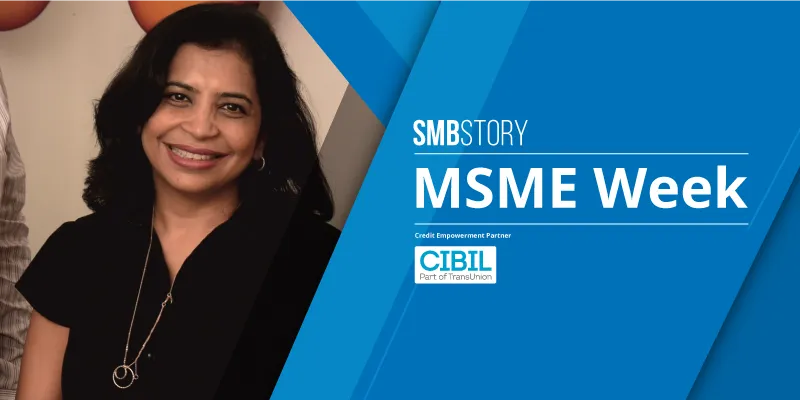World Music Day: This former banker’s music institute teaches 75k students across 150 schools
Tanuja Gomes’ Furtados School of Music is a Mumbai-based business that runs music education centres and partners with schools across the country. It is part of the family-run Furtados brand, which boasts of a 150-year-old legacy in the music business.

Tanuja Gomes, Co-founder and CEO, Furtados School of Music
At a time when stress, anxiety, and depression are becoming more prevalent across the world due to the coronavirus pandemic, entrepreneur and former banker Tanuja Gomes believes music is the healing medium everyone should turn to.
Tanuja seeks to introduce thousands of children, youth, and adults to the healing properties of music through her business, the Mumbai-based Furtados School of Music (FSM).
“The Furtados brand has a rich history of over 150 years. Our family-run business has partnered with over 150 schools across India for music education and raised over $2.5 million in funding from investor groups. We currently have over 75,000 students and 350 employees,” she says.
For years, FSM has relied on an offline model to impart music education to students, but it has been forced to rethink its approach in the wake of COVID-19. It is now focussing on building FSM Buddy, an online platform that gives students access to 180 music courses.
In an exclusive interview with SMBStory on the occasion of World Music Day, Tanuja Gomes, the Co-founder and CEO of FSM, narrates how the brand started and how it grew into one of India’s biggest music schools.
Edited excerpts from the interview:
SMBStory [SMBS]: How did the Furtados brand come into existence? What is its history?
Tanuja Gomes [TJ]: The foundations of the Furtados brand we know today were laid by my father-in-law John Gomes. In 1953, when he was 26, he bought a struggling business which was into religious supplies.
The company, BX Furtado & Sons, was started in Mumbai by a Goan immigrant Bernard Xavier Furtado in 1865. After it went up for sale, John bid for it, won it, and turned its fate around.
SMBS: How was the school of music started?
TJ: While my Co-founder Dharini Updadhyaya and I were working together in Barclays, we realised we were both passionate about building something that brought a positive impact to society. Dharini aspired to start music schools across the country and provide children with a life of joy through music.
Furtados, my family business, had a strong legacy in the space of music and an in-depth understanding of the ecosystem. So, we felt the stars aligned, and decided to build a scalable and niche business for enabling music education under the Furtado brand.
We started the school of music in 2011 and established it as FSM Education Pvt Ltd in 2014. The family backed us initially. We raised our first round of external funding from DSG Consumer Partners, and we haven’t looked back since.

A Furtados music centre
SMBS: What were the initial challenges you faced?
TJ: In India, students usually learn music and how to play instruments on a one-on-one basis or in small groups. Wide-scale implementation of music education in schools was not prevalent. Music teachers were therefore not able to easily adapt to teaching a large group of students, as they themselves were not taught in large groups.
We launched an extensive training programme to completely transform how music is taught in schools across geographies. Educators have now witnessed the efficacy and benefits of this programme, and are now our biggest brand ambassadors.
SMBS: What is your business model? What are some of your unique business strategies?
TJ: We have two main verticals: school partnerships and excellence centres. We partner with leading K-12 schools and run the entire music programme for their students. This includes setting up of music labs with instruments, building the curriculum, getting trained and certified teachers, and conducting annual assessments.
We cover a wide range of instruments as well as a range of age groups, right from three-year olds to diploma programmes in music for older students. Our excellence centres are well-suited for students who want to excel further and attempt external accredited examinations with Trinity College, London.
SMBS: How did FSM diversify into different curriculums?
TJ: Music is a universal language and we have been able to reach out across demographies, age groups, and touch points. With our leadership team’s rich experience in music education and their execution ability, we have achieved scale.
Our product categories are Music is Fun (a pre-school music learning programme), International Performance Curriculum (K-12 instrument learning programme), International Music Curriculum (K-12 general music programme), Sangeet is Fun (a Hindustani learning curriculum) and now the online music education platform FSM Buddy.
SMBS: What is FSM Buddy?
TJ: At FSM, we have been exploring online arts education. We launched a platform which will help learners to find the best teachers in the arts space. It covers a wide range of arts including music, speech and drama, dance, drawing, etc.
When the COVID-19 crisis started, we were agile and reached out to our students to enable online learning for them through FSM Buddy. The online platform has completely changed our consumer’s behaviour. Parents and students are enrolling, and our teachers, who were initially not fully convinced, are now doing a fantastic job in imparting music education online.
Over 20,000 students have learned online with us over the last eight to ten weeks. We are confident we will come out of the COVID-19 situation successfully as a lot of benefits are emerging from online learning, such as higher levels of concentration from students and easy access to music teachers across the world.
However, the situation has undoubtedly been challenging, given the uncertainty of how businesses will shape up in the offline world. But we are blessed that we have a business that can pivot online, as not too many businesses have the same opportunities.
Edited by Javed Gaihlot








